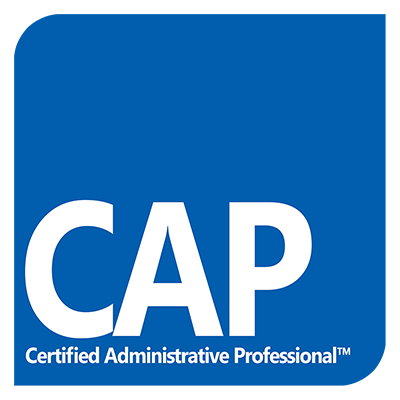
FREQUENTLY ASKED QUESTIONS (FAQS)
At the Institute of Certified Administrative Professionals (ICAP), we understand that you may have questions about the Certified Administrative Professional (CAP®) certification. Below, we have compiled a list of frequently asked questions to help you better understand the CAP® designation
To be eligible for the CAP® certification, candidates must meet specific requirements, including:
- Work Experience: Candidates must have a certain amount of professional experience in an administrative role, which varies based on their level of education.
- Education: While a specific educational background is not mandatory, relevant coursework and degrees can enhance your preparation for the certification exam.
Yes, the CAP® certification can significantly enhance your job prospects. Employers recognize and value the CAP® designation as a mark of excellence, and it can give you a competitive edge in the job market. Many organizations prefer or require CAP® certification for administrative roles, increasing your chances of securing a desirable position.
No, formal training is not mandatory. However, with the modern office environment increasingly driven by technology, formal training is crucial for enhancing your skills and staying competitive. Employers prefer candidates who can immediately contribute without needing additional training, and certification demonstrates this capability.
CAP is an assessment-based certification tailored for office and administrative professionals. Recognized within the industry, it signifies that you possess the essential knowledge, responsibilities, and skills required of an administrative professional in the modern workplace.
The CAP® exam is administered in a computer-based format at approved testing centers and online. It consists of multiple-choice questions covering the key domains mentioned above.
ICAP offers various resources to help you prepare for the CAP® exam, such as:
- Comprehensive study guides
- Training courses
- Study groups and collaborative learning opportunities
